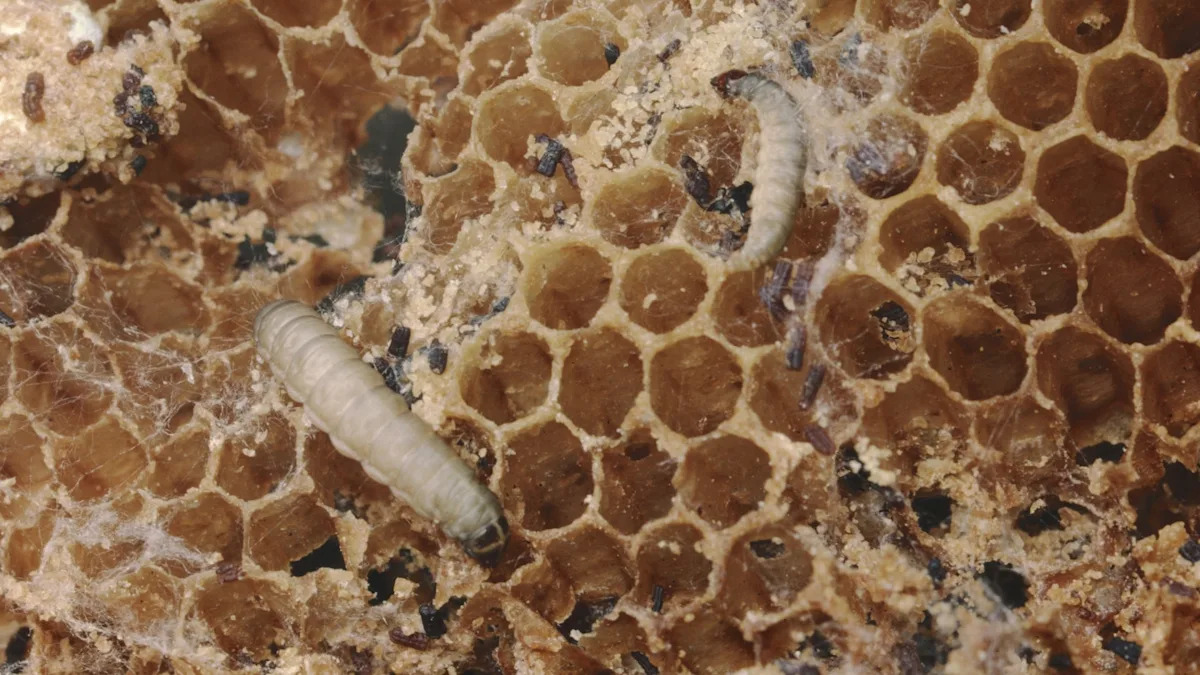Scientists have unveiled a potentially revolutionary discovery involving caterpillars that can digest plastic and turn it into body fat, breaking down plastic materials in days rather than decades, according to Science Daily.
“Around 2,000 waxworms can break down an entire polyethylene bag in as little as 24 hours,” said Bryan Cassone, a researcher at Brandon University in Manitoba.
Polyethylene is the world’s most commonly used type of plastic.
Cassone compared the way in which waxworms process plastic to what happens when people overeat.
“This is similar to us eating steak — if we consume too much saturated and unsaturated fat, it becomes stored in adipose tissue as lipid reserves rather than being used as energy,” he explained, per Science Daily.
Scientists expressed optimism that these plumped-up waxworms could then be used in useful ways, such as for fish food.
While waxworms can eat and process plastic, they cannot survive on it, becoming weak and losing body weight over time, the researchers found.
However, the scientists were confident that they could find ways to boost the waxworms’ diet, allowing them to act as plastic-waste processors while also maintaining their health.
“They do not survive more than a few days on a plastic-only diet and they lose considerable mass,” Cassone said, per Science Daily. “However, we are optimistic that we can formulate a co-supplementation that not only restores their fitness to natural levels but exceeds it.”
Researchers around the world have been hard at work looking for ways to address the world’s plastic pollution crisis.
One study found that the world produces 57 million tons of plastic pollution every year, a figure that is expected to grow considerably over the coming decades.
Worse yet, plastic waste can stick around for hundreds or even thousands of years, breaking down into smaller and smaller particles known as microplastics and nanoplastics.
These fragments have completely saturated Earth’s environment and our own bodies, having been detected everywhere from the deepest parts of the ocean to the top of Mount Everest to inside vital organs.
While waxworms cannot solve the world’s plastic problem on their own, the scientists’ discovery could be an important step toward alleviating the threat that plastic waste poses to public health and the environment.
As scientists race to find solutions to plastic pollution, you can make a difference by using less plastic in your everyday life, thereby reducing plastic waste as well as lowering demand for products that contain plastic.
Join our free newsletter for weekly updates on the latest innovations improving our lives and shaping our future, and don’t miss this cool list of easy ways to help yourself while helping the planet.

